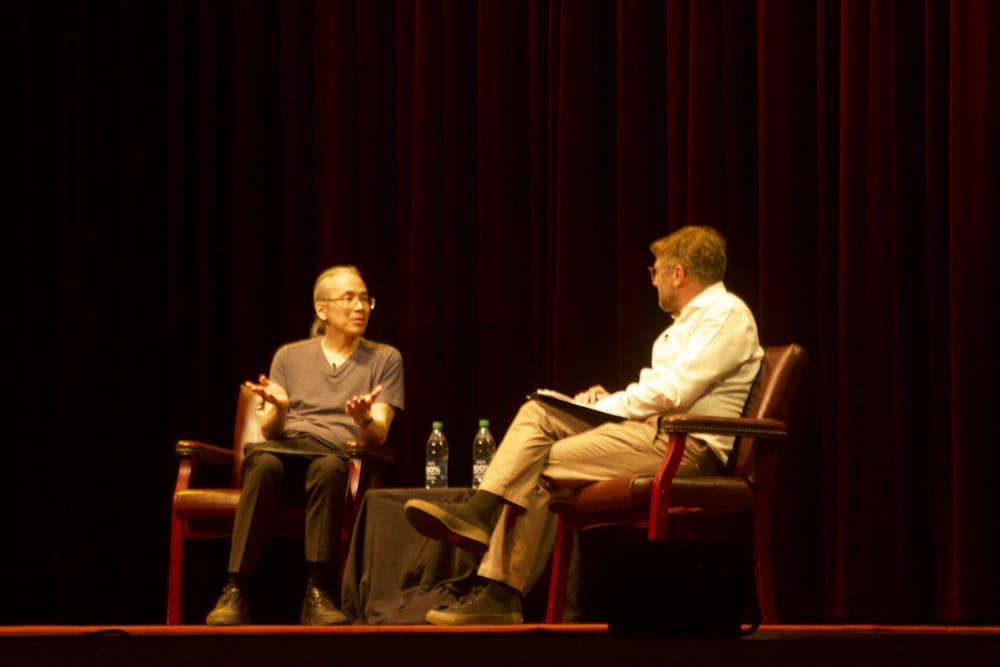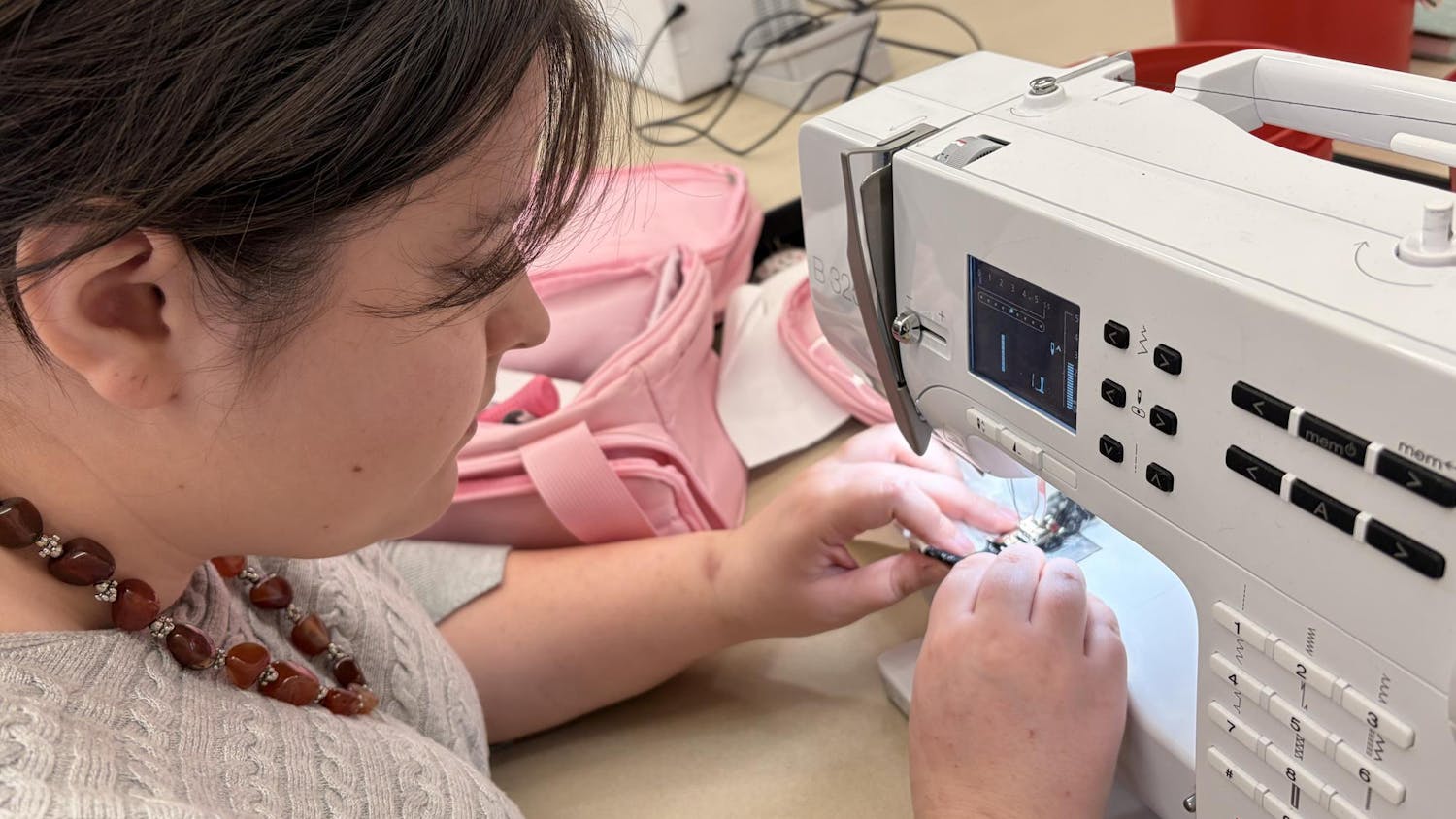Ted Chiang took the stage on June 8 at the Buskirk-Chumley Theater to discuss his own work and speak on modern issues of technology. Chiang was invited to Bloomington by the IU Arts and Humanities Council as part of the Granfalloon Festival, an annual event which celebrates literary author Kurt Vonnegut.
The council’s director, Ed Dallis-Comentale, opened the presentation by talking about their mission as a whole and why they feel Vonnegut is worth celebrating. Dallis-Commentale said Vonnegut was heavily involved in Indiana culture, calling him a “Hoosier hero.” He then shared this quote and said it was Vonnegut’s only written reference to Bloomington:
“Bloomington, Indiana is a hell-hole, God knows, but the Indiana University Writers' Conference takes place in the student union, which contains four restaurants, a pool hall, a barber shop, a bowling alley and a bookstore, and grown-ups can drink booze in their rooms.”
Chiang began his portion of the event by discussing the recent influx of attention toward artificial intelligence. He argued that “intelligence” is a misnomer, saying that, in many contexts, the term “artificial intelligence” can often be replaced with “applied statistics,” later calling popular chatbot ChatGPT “autocomplete on steroids.”
He went on to distinguish different definitions of “intelligence,” first offering that intelligence is measured by how effectively one can complete one's goals, then assessing the logic of this definition. As an example, Chiang pointed out that although people with more money may have more success in achieving their goals, this does not necessarily make them more intelligent than those poorer than them.
Chiang said he prefers the definition wherein intelligence is how efficiently one is able to acquire new skills, using this framework to compare the intellect of a group of lab mice and chess algorithm AlphaZero.
He explained a case in which researchers taught rats to drive specialized vehicles over the course of 24 five-minute sessions, comparing it to AlphaZero’s chess learning process. Though it only took four hours of the algorithm playing against itself to surpass the world’s best chess program, AlphaZero can work at inhuman speeds, playing millions of games per hour.
Chiang used these examples to illustrate that, although our current robots can exude a facsimile of intelligence, it will take a long time before they can be made even as smart as rats, assuaging fears of an impending AI takeover.
He went on to discuss these concerns, boldly stating that “fears about technology are fears about capitalism” and that we dread its rapid advancement because we see how it can replace us in the workforce. Chiang sees these worries as unfounded, though, citing the strict limits of the technology as it exists today and saying of ChatGPT that “any task that cannot be reduced to an exchange of words will forever be beyond its ability.”
After Chiang’s exposé on AI, Dallis-Comentale returned to the stage for a Q&A. Audience members were allowed to write and submit questions before the show to be asked during this section.
Chiang’s answers were lengthy, but he took time to choose his words carefully and purposefully, fielding complex metaphysical questions in a way that was understandable and clear. He and Dallis-Comentale touched on a wide range of topics, including the overinflation of big corporations, contemporary conflicts between science and religion and the power of media to inspire deep thinking.
After the presentation, patrons were encouraged to buy copies of Chiang’s books and have them signed, the line for which almost instantly stretched into the theater’s lobby.
Although the event was advertised as a reading, Chiang’s prescient lecture on the dangers — both real and imagined — of artificial intelligence was clear, illuminating and timely, lifting the veil obscuring discussions of these new technologies and dispelling some alarmist concerns surrounding their implementation.






